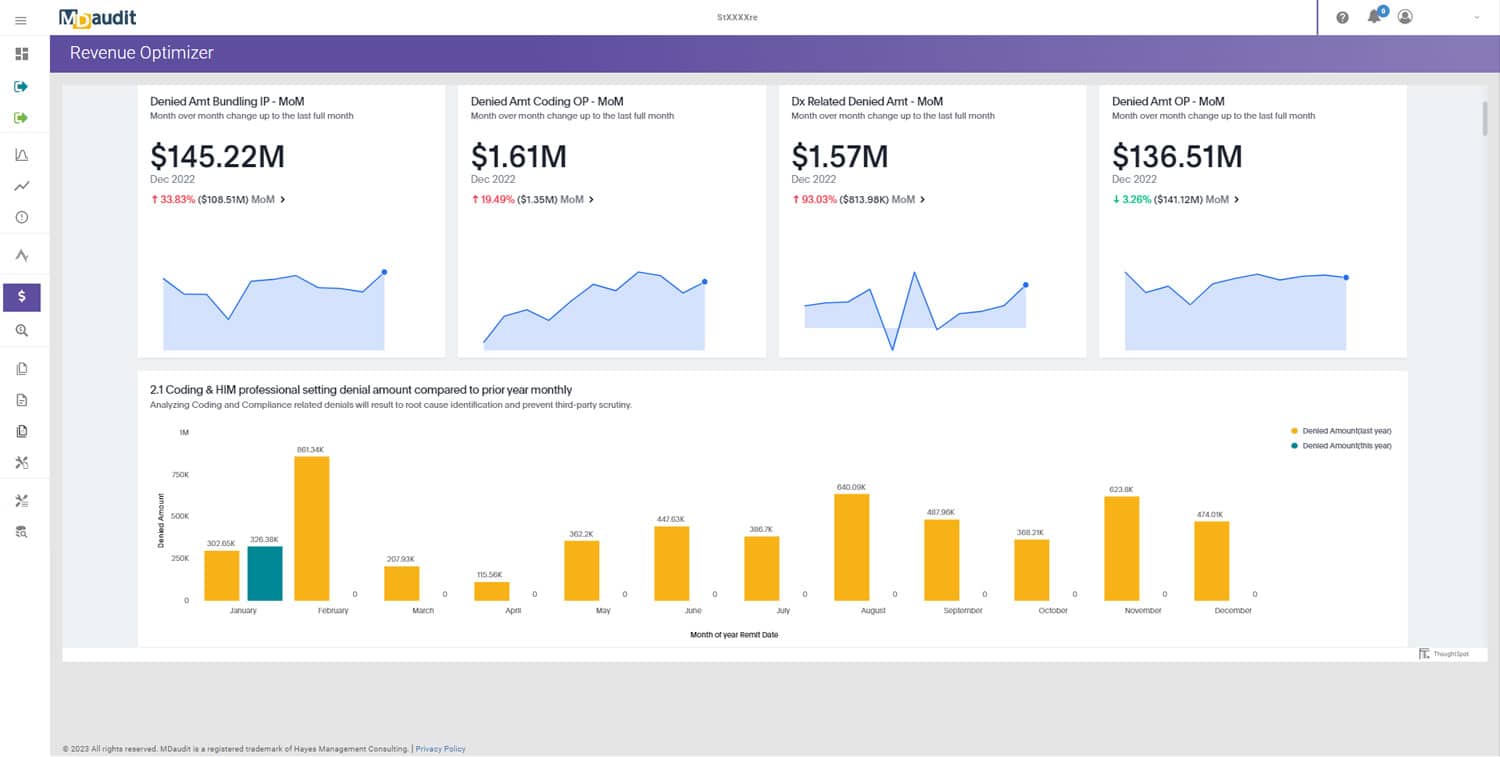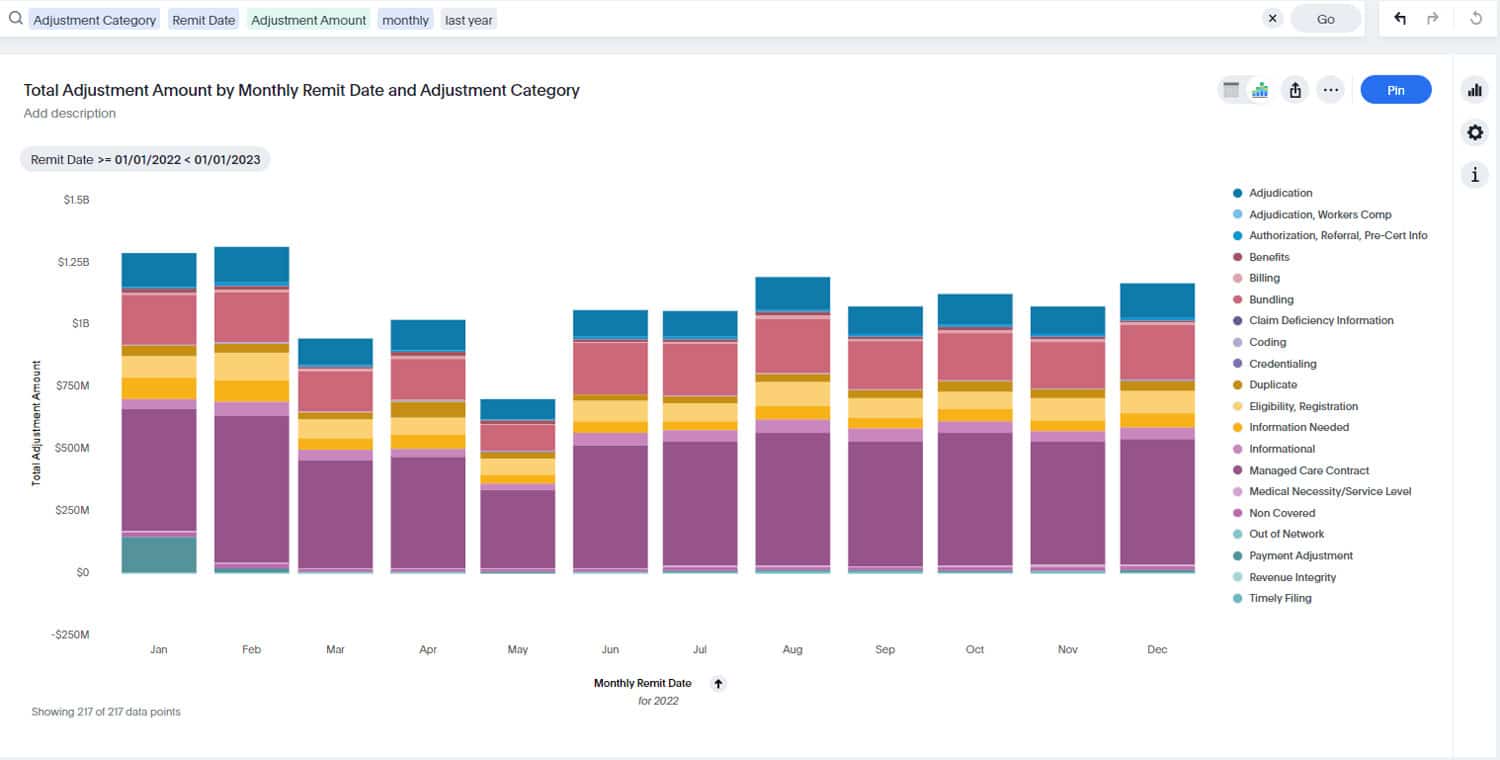As our industry continues to watch and navigate the influx of systematic payer denials, an ideal solution can appear elusive.
The High-Impact Revenue Problem in Healthcare
2022 MDaudit data revealed specific high-impact denials happening across three main categories. These categories are high-spend areas in the outpatient and ambulatory sectors, identified by historical data. While there can be many reasons for denials, the Return for Information (RFI) is particularly unsettling and frequently assigned to these claims.
The three high-spend denied categories are:
- Pharmacy/Drugs
- Durable Medical Equipment
- Complex diagnosis in four categories: Cancer, Heart, Kidney, and Musculoskeletal.
Billions of dollars in these categories are being denied and delayed due to systematic payer denials- creating a significant impact on revenue and timely payments for facilities.
The Denials Predictor module is a predictive aspect of our Revenue Optimizer and can be used in conjunction with other suite solutions as part of the Revenue Integrity Suite. With this new module, clients can audit and proactively address payer-specific requirements for modifiers or documentation.
Payers are leveraging AI/ML Technology for Claims Adjudication. Should you?
“Together, CMS, DOJ, HHS, and OIG will invest in innovative program integrity tools to fight fraud, waste, and abuse in a changing healthcare landscape. New advancements in predictive modeling and artificial intelligence will allow CMS to enhance existing efforts to reduce improper payments, prevent fraud, and target bad actors while limiting burden.” – U.S. Department of Health & Human Services, FY2023, Budget in Brief
MDaudit’s AI software was built to assist, not replace our customers. Built upon years of payer adjudication rules, we understand what it takes to organically lessen systematic payer denials.
Client Case Study
In a recent case study, MDaudit’s West Coast customer (utilizing the Revenue Integrity Suite), found claim denials for medical necessity with leadless pacemaker implants in their Hospital OP segment from Medicare. This customer noticed their claims were approved by the Medicare Administrative Contractors (MAC) initially but then rejected by the Recovery Audit Contractors (RAC). RAC’s rejection of the entire claim was due to a single line missing clinical trial number and documentation (each denied claim was worth around $100,000).
Leveraging a proactive approach to catch and fix these claims before submission to the payer, the client utilized Denial Predictor to narrow down specific codes and payers at the heart of these rejections. Findings revealed the source and solution of these denials – single dose vial/package drugs that do not contain modifier JZ or JW. Proactively adding the modifier prior to claim submission has resulted in projected annual savings of $8-$10 million. Read more from this case study.
Predictive software is changing the landscape of healthcare billing and compliance for the better, and MDaudit remains a forerunner of this change.
Watch our recent on-demand webinar: Reducing Denials and the Threat of External Payer Audits.







